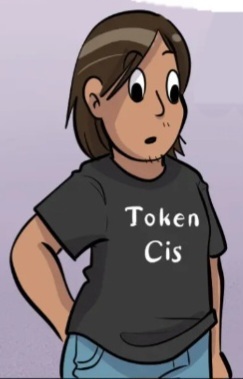A few years ago I read a bizzare article in one of my country's national newspapers: A member of the mainstream social democratic party was warning everyone about the dangers of the socialists, which is pretty much par for the course. However, in this article he used the argument that trying to abolish capitalism was like trying to abolish weather pattern. Capitalism has existed since the stone age, when neanderthals first startet trading one good with another, and has been a part of human nature ever since.
Now, this is obviously absolute nonsense. In reality, capitalism has existed only for a tiny part of human history, and cavemen trading coconuts for backrubs certainly isn't it. The problem is that this sort of thinking is not uncommon, and is a major problem for the left to overcome. What capitalism actually is or how it functions was never a part of general education when I grew up, which is extremely odd considering it is the driving force behind our societies. It is just something that exist and we have to exist alongside it.
There's been quite a bit written about the post-cold war generations understanding of capitalism as the only possible reality (Mark Fischer for example). This is sadly in line with my own experiences. When having conversations with fellow socialists my age, they are usually unable to really explain what capitalism is, and when describing what sort of society they want it is often just capitalism with a more robust welfare state. In other words, they make last century's social-democrats seem like radicals.
That being said, I think it's a mistake to dismiss these people as clueless or opportunists. Mostly, they are working-class young adults whom capitalism hasn't necessarrily been very kind to, but they're stuck with the liberal worldview that has been drilled into them since kindergarden age. They believe true emancipation of the proletariat isn't possible, instead we can only work to improve the conditions of our own servitude.
So what do you guys think is the best way to break through this view of the world where capitalism is presented as a divine force? Marx is obviously super-relevant here, because historical materialism is a direct antidote to this belief, and offers an alternative, much more accurate understanding of history.
So is the solution to just yell “READ MARX” at all our friends? This might work for people who are already sympathic to leftism but don't really understand theory yet, but is there ways we can raise awareness for working class people who are apolitical or liberal? Obviously, some of them will conclude that capitalism is the best system anyway, but the more people are aware that capitalism is a choice, the more people would inevitably end up turning towards socialism (real socialism, not welfare capitalism) as an alternative.
To me, this seem like a natural place to attack capitalism since the truth isn't really hidden or kept secret, it just isn't actively taught to most people. Even a liberal university course won't tell you capitalism is an eternal part of the human existence. It's already an accepted part of pro-capitalist academia, so surely there are things we could do to make fellow workers question their internalized assumptions about capitalism?
Sorry for effortposting, this has been on my mind a lot lately.
EDIT: Lots of interesting replies, thanks for engaging.
gift economy =/= capitalism
also, exchange between groups of people tended to be ceremonial in pre-colonial America. There wasn't a systemic material need to manage constant exchange with other peoples, as all necessities were produced independently all over. Native Americans were often very confused by the seemingly constant desire for European settlers to trade with them for those reasons. The different systems of obligation and exchange set up Native Americans to be further exploited by
enterprising early capitalists disrupting the established marketplaceopportunistic genocidal settlers.I bring up Native Americans because documentation pertaining to the common experiences of indigenous people tend to be accepted as a useful indicator of sorts for how life likely worked out pre-civilization, even though European contact disrupted many parts of life in the Americas long before meaningful information was gathered (mass die-off from exposure to European diseases from the 15th to 16th centuries, causing massive reforestation in former indigenous cropland, contributing to the Little Ice Age from the carbon sequestration).
The first few chapters of Debt by Graeber talks about this misnomer. That the idea of a barter economy actually came from English liberal economists trying to reverse enginer their system to previous societies and there's little evidence of intra-society (right? Intra is within?) barter systems and it was mostly between unknown societies.
There's two main elements here.
-
muh human nature
-
capitalism is the natural state of things
I'd say brush up on pro-social behavior as a factor in human evolution and ecological success. The success of humans comes primarily from being very adapted to working in groups/communities. This is all based in research that shows empathy and other pro-social proclivities are very ingrained in the human brain. We strive to communicate and connect and provide for each other as the default. Shitty capitalist society basically strips away all that through the normalization of brain worms. This is why so many folks in the colonialist/imperialist mindset have this 'noble savage' construct subconsciously bubbling up all the time. They can feel the latent instinctual pro-social impulses that they have been trained to bury trying to boil up through their brain worms, and that non-cognitive dissonance is very uncomfortable.
On the 2nd point, you can use the pro-social elements as leverage points to clearly contrast with the 'capitalism is natural' construct. I do this pretty often when in a clearly social and non-competitive setting. People pretty easily recognize the difference between real human connection in such a setting versus 'professional network' BS behaviors with just the slightest bit of highlighting. It's very useful to point out the hustle mentality as alienating and disconnecting in contrast to real community building and mutual aid.
Just a few thoughts that might help you have a stronger footing in these kinds of discussions.
-
And trade and exchange without markets. The trick is popularizing this knowledge and understanding.
Seeing multiple people mentioning David Graeber, which I'm not familiar with at all.
Will check out his books for sure, thanks for the recommendation. :rat-salute:
this just dropped https://www.theguardian.com/news/2021/oct/19/unfreezing-the-ice-age-the-truth-about-humanitys-deep-past
Yes, you're right of course. Capitalism has only existed for a few hundred years. The changes in modes of production should be taught in schools and I don't even think it would be all that controversial of a topic. Yeah, chuds wouldn't like it because the implications are that capitalism is one of several stages, but historically this all seems pretty settled even by non-socialist historians.
However, I see two issues with trying to comabt ignorance on this issue with the direct approach of teaching history.
The first issue is... a lot of people really don't like learning about history and there's nothing you can do to change that about them. It sucks, and it doesn't change the fact the changes in modes of production should be taught in schools, but I think the impact of this will be minimal in the short term, but still useful in the long term.
The second issue is we can't take what people say about "capitalism has always existed" at face value. We have to try and understand what people really mean when they say that (from here on out I'm really just talking about US Americans since that's what I know, ymmv depending on your local circumstances). I think what they mean is, the pursuit of profit has existed for thousands of years. They're talking about exchanging goods and services for money or for other goods and services with prices determined by "willing buyer willing seller". They're talking about how someone has to work to eat and theoretically, working harder or smarter leads to improved material conditions. And I do think they're right in that this is true in European cultures.
Even if these ideas aren't rooted in Christianity, Christianity has reinforced these ideas in Europeans and their descendants for many centuries. The idea that humans are inherently sinful and fallen creatures. That we're naturally lazy and will shirk responsibilities unless there is some sort of Big Stick out there to punish us for wrongdoing. Fundamentally, it's this notion that there is a fixed human nature that is immutable and that socialism is incompatible with "human nature". Even in people and societies that are no longer very Christian, I see this attitude. It's the effect of centuries of indoctrination.
So how do we combat this? I think we do that by really striking at the heart of this idea of some immutable human nature. Anthropologists have all sorts of data that shows these notions of human nature are completely bunk. And I think for folks in western societies, we need to get people to understand that the Euro way of doing things isn't some universal human experience. Other societies around the world and across time have operated very differently from how things operated around here. Not that I think people will be all that receptive to this, but I think it would chip away at these ideas of a selfish, fallen human nature and the universality of the western experience.
What other's said, read Graeber. I also recommend The Origins of the Modern World by Robert Marks, but that's not what you're asking. To explain it simply to progressives you mentioned in your post, you need to explain how capitalism is a race to the bottom. Producers race to exploit the Earth as ruthlessly as possible, workers compete with eachother to lower the value of their labor. Production is not designed at any point for the benefits of humans, they operate for the benefit of profit.
Explain how capitalism is a race to the bottom that relies entirely on humanity's worst flaws. Then explain we need a new race, a new way of living that does not rely on greed. A new means of production that fits a model of humanity.
really good thread! also going to add my voice to the chorus recommending graeber
one suggestion i would have might be to focus on some less ideological-battleground stuff that people just kinda take for granted. not that theyre unique to capitalism, but the rise of capitalism as the dominant mode of production in societies came alongside:
-
widespread commodity production
-
widespread wage labour
the statement that "most people for most of history worked to produce food and items for the direct use by themselves or the people immediately around them, not to sell at a market to buy the things they actually need" is one that i dont think would set off the ideological blinders, but is also something that would probably come as a bit of a jolt to the system for a lot of people, because we are so trained to think of everything as a commodity
likewise, the statement that "working for someone else for money in order to buy the things you need as commodities was extremely rare for most of history". you can get into discussions about how many of the historical alternatives also sucked, but thats also getting them further into thinking about widespread proletarianisation as an anomaly (hopefully obvious protip: do NOT use the word proletarianisation). and of course if they say "yeah well there were lots of slaves instead" then hey interesting you should say that...
you could also talk about how even money is also a bit of anomaly, but i think thats just such complicated territory that its probably better to avoid
-
here's a simple (maybe too simple) way to frame it:
capitalism is "when businesses have owners" not "when there are markets"
socialism is "when businesses are run democratically" not "when there are no markets"
the article you mentioned conflates capitalism and trade, but you can have centrally planned capitalism and market-driven socialism.
most societies have a combination of central planning and market-driven production.
I don't know if anyone actually has that as a firm opinion or if it's just something they might think implicitly only as long as they don't think about it. All you really have to do is point out that feudalism came before capitalism. There were peasants and lords and stuff and that wasn't capitalism. Capitalism evolved out of feudalism.





